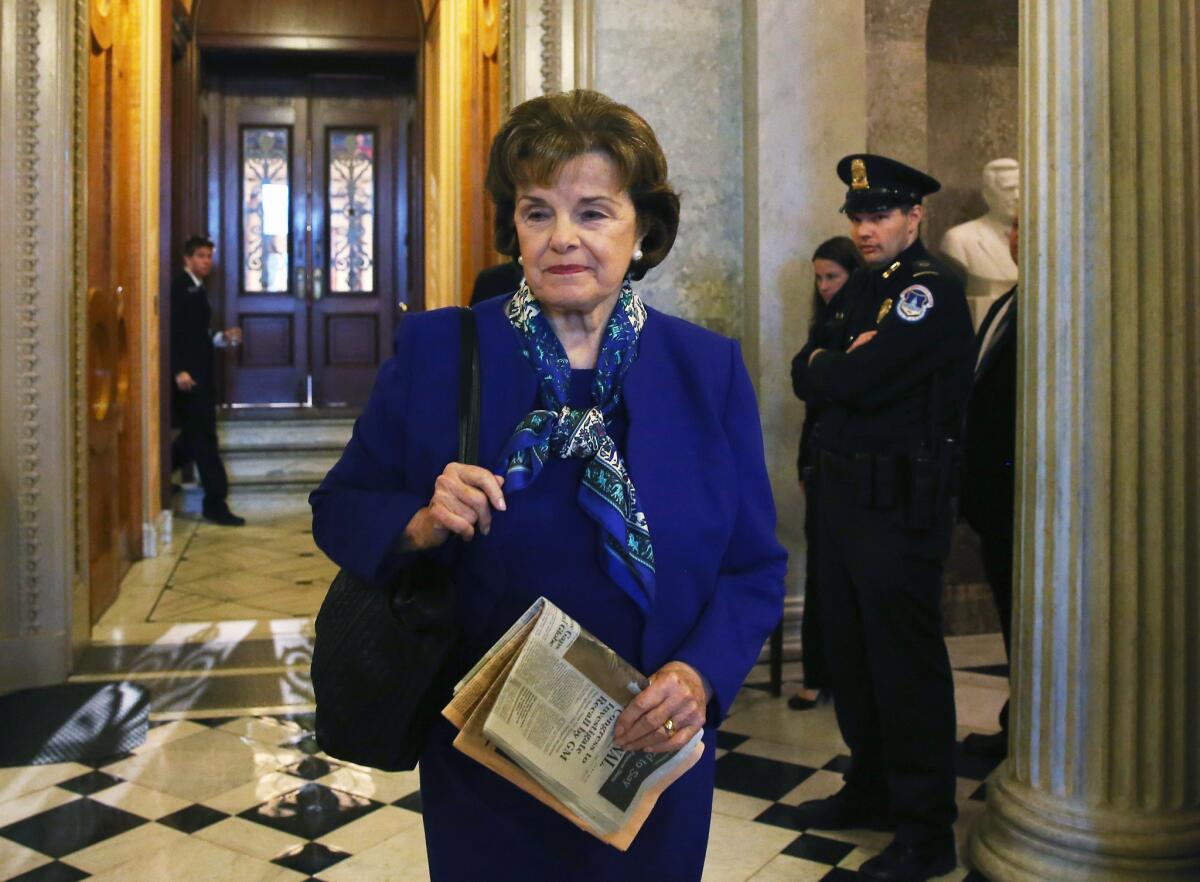Editorial: Why are U.S. lawmakers making California water deals in secret?

- Share via
California made extraordinary progress on water policy in this severe drought year, largely under the guiding hand of Gov. Jerry Brown. The governor’s master stroke was to initiate the conversation and then back away, allowing various interests — agribusiness, urban areas, environmentalists, people who favored building tunnels to move water from north to south, people who vigorously opposed them — to fight it out.
The process allowed every geographic, economic and political interest to put their positions (and emotions) on the table. Brown reentered the process over the summer to help drive two key achievements: consensus on a water bond to finance cleanup, storage and conservation projects, and legislation that for the first time puts the state on a path toward regulating use of diminishing groundwater. Those landmark actions won’t make the rain fall, but they will help California manage future droughts and parcel out scarce water as wisely and equitably as possible.
That inclusive and generally open process stands in marked contrast to parallel talks currently taking place in Washington on a bill to — well, to do what? We can’t be absolutely certain, because a self-selected group of House members has joined with Sen. Dianne Feinstein in unusual secret negotiations that freeze the public out.
But judging from a previously adopted House bill and from comments by some involved in the secret negotiations, the goal is to unravel environmental laws that protect the flow of fresh water through California’s heart and lungs — the Sacramento-San Joaquin River Delta — in order to ensure that large water districts and the agriculture businesses that are their members will get a larger share of water in drought years like the current one and perhaps even in wet years.
Some participants in the secret negotiations have said they intend to get an agreement by the end of the week. Only then, after deals are cut and votes are lined up, would the rest of us be let in on the terms.
Broad and public talks on water policy tend to be more contentious than exclusive, back-room negotiations. But it’s the contentious talks that, if handled well, can actually bring progress, because the effort to find compromise leads to consensus and builds confidence in whatever round of bargaining comes next — perhaps the negotiations over whether to move ahead with those delta tunnels. The current process, with only selected interests at the table, negotiating about California but behind the backs of Californians, may destroy much of the carefully built consensus, compromise and confidence painstakingly built up over the course of the year.
Follow the Opinion section on Twitter @latimesopinion
More to Read
A cure for the common opinion
Get thought-provoking perspectives with our weekly newsletter.
You may occasionally receive promotional content from the Los Angeles Times.










